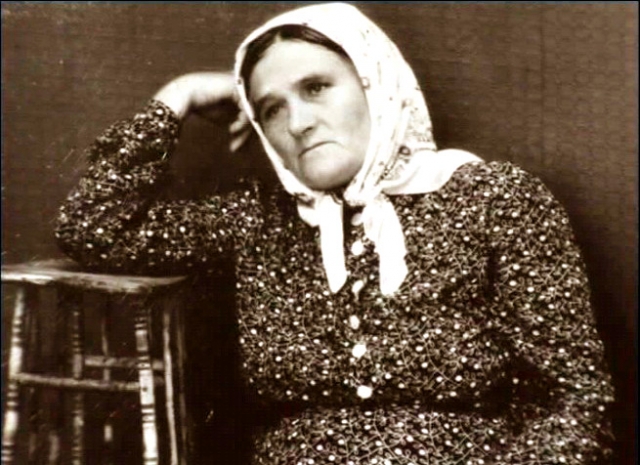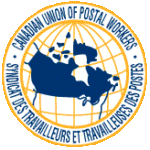Rare Doukhobor recording re-mastered
Traditionally Doukhobor hymns and psalms are passed verbally from generation to generation and rarely recorded. But in the 1960s an unusual taped session sung by Anna Markova, daughter of Peter P. Verigin – Chistiakov and mother of John J. Verigin, was done. This unique recording has recently re-surfaced and has been re-mastered for the community.
Peter Relkoff of Slocan recently decided it was time the recordings, preserved since 1962, were shared with a wider community and protected for the future. This labour of love started for Relkoff when he was just 19-years-old living in Slocan Valley with his parents Anne and Peter.
“I can still remember that time that she (Markova) stayed with us for a week,” said Relkoff. “During that visit my father owned a tape recorder. At that time there were only three tape recorders in the whole valley. The idea was that my father had volunteered to record songs that Anna Petrona Markova brought from Russia – some new songs that the choir could learn. I wasn’t working at the time so I volunteered to do the recording.”
Markova came to Canada after being released from Siberia where she had been incarcerated in a work camp. Most of her family had already escaped persecution in Russia for a life of freedom in Canada when Anna Markova, the granddaughter, daughter and mother of three generations of Russian Doukhobor leaders, disappeared into Siberian exile in the 1940s.
Innocent of any crime, Anna spent 15 years in the gulag where millions of political prisoners were detained or died. Anna was finally released in 1954. In 1960, she was allowed to immigrate to Canada and join her family in Canada. During her incarceraton she lost her husband and her brother, but Relkoff said she showed only forgiveness for those who had caused her such pain.
“The first number is called With Pale Hands Across My Chest and is dedicated to her brother. He was sent into exile also and he died there, but she never saw him again – she dedicated that song to him,” Relkoff remembered.
“That was the first song she sang so obviously it was on her mind. Here she is in Canada and her brother and husband both lost their life there. But she didn’t have any bitterness for the era that she lived in… she was able to carry on. When she came to Canada it was a new part of her life. I think she lived in the now.”
After somewhat re-establishing herself with her family, she was invited as a guest to many Doukhobor communities throughout B. C., Alberta, and Saskatchewan. In mid-October 1962, she was invited to the Slocan Valley in the Kootenays. Her visit and stay was arranged by the Slocan Valley Choir who wanted to learn some new songs that Anna Markova brought with her from Russia. Peter’s father offered to record Markova’s songs for their choir to learn. Not only was Markova known as an excellent singer, her knowledge of songs from memory was extensive.
In what might be considered by some divine intervention, the series of recordings made in the early 1960’s was protected by the Relkoff family over 50 years and through three houses. Originally made on reel-to-reel tapes using two recorders in their home, Relkoff and his father took the recording into a new dimension by suggesting Markova record a duet by herself. He recalled that she didn’t know what her voice sounded like because she had never been recorded before.
“Basically what she did is she would sing in a lower tone first and we’d record that, and then she’d listen to it,” recounted Relkoff. “The first time she heard herself singing, she actually had tears in her eyes and said, ‘do I really sound like that?’ If she was happy with the recording, then what we’d do is play that recording, and then she would join herself in a higher pitch and we’d be recording with the (second) tape recorder.
“The first time I still remember how emotional she got that she was actually singing a duet with herself.”
Relkoff recalled how Markova progressively got more intent on her quality, wanting to always be singing to the best of her ability.
In 1999 Relkoff had the foresight to do basic digitization of the tapes to ensure their preservation. But the new edition of the songs is now completely re-mastered after Relkoff turned them over to sound engineer, Ron Mahonin.
Mahonin, responsible for the new digitally edited version of the recordings that took over 70 hours to complete, said that the combination of multi-track recording, the historical significance of who Markova was, and the quality of her singing created a uniquely magical sound.
“Multi-tracking was just being talked about in the industry when the Relkoff’s did these recordings,” commented Mahonin. “It’s amazing that these were kept intact all these years. I had my work cut out for me to eliminate or soften the background sounds like dishes clanging, the hum of the actual recorder and other noises. What was really amazing is her ability to keep tone throughout a song – many professionally trained singers can’t do that – I don’t know how she learned her skill.”
Once in her new home in Canada, Markova dedicated herself to the USCC raising money for the Brilliant Cultural Centre, supporting the ladies spiritual group and cooking group, and to her family.
Relkoff’s connection to Markova has never dwindled and in 1993 he and some friends travelled across Siberia by train. In conversation with the conductor he learned about the gulag and work camps and shared the story of Markova’s life. So taken was the conductor with Relkoff’s story that he connived a way to stop the train in the very village, now deserted, where Markova had been interred.
“He said, here you are, you came all the way from Canada, he says he felt we should at least stand on the ground where she was in exile and forced to work,” explained Relkoff. “In the middle of the night, two o’clock in the morning, he stopped the train, made the excuse that he heard noises coming from the wheels. He insisted we get off the train and stand on the ground.”
Relkoff is proud that he is able to contribute to the Doukhobor historical collection with the recordings he made.
Markova lived from 1902 to 1978 and this piece of not only her history, but that of the traditional Doukobor culture, is beautifully preserved for all to share.
The collection of Markova’s songs can be found at http://fatherpete.ca/html/anna-markova.htm along with her story, the re-mastering process, and details of Relkoff’s 1993 train expedition.



























Comments